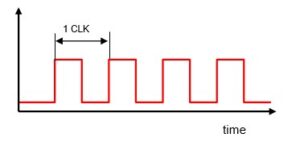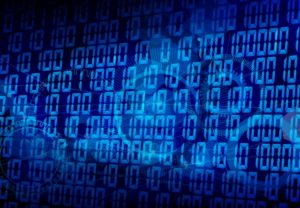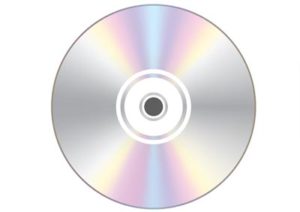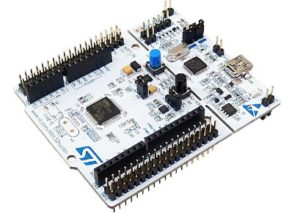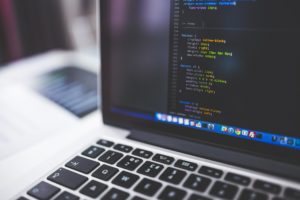Peripheral library for ARM STM32F1 series
Table of contents1 MCU Peripherals2 SPL(Standard Peripheral Libraries)3 Flowchart4 Peripheral Library Summary MCU Peripherals The point The function of each peripheral is not turned on or off with a switch, but rather the function is set according to whether or not a clock is supplied. If the clock is not supplied, most peripherals (peripheral functions) […]
ARM STM32 peripheral functions and their relation to firmware libraries
Table of contents1 What is the role of firmware?2 Software and System Configuration3 Why use the library SPL? What is the role of firmware? Software and System Configuration Why use the library SPL? The point Once you have become accustomed to the STM32 MCU to some extent, shifting to the latest development environment and using […]
About pulses used in MCUs [essential in control systems]
Table of contents1 Hardware and Pulse2 Pulse type3 Pulse Width Modulation:PWM Hardware and Pulse Pulse type TTL Standard ■ TTL general 1 (High)/0 (Low) level VIH(min. voltage to be regarded as High)approx. 2.0V VIL(max. voltage to be regarded as Low)approx. 0.8V i.e., the logic is 1 (High) at 2.0V or higher and 0 (Low) at 0.8V or lower. CMOS […]
Basic hardware circuits around Microcontroller [Must-see for beginners]
Table of contents1 Electric Circuits and Ohm's Law2 Voltage divider circuit3 Digital Basic Circuit4 Circuit used for General-purpose input5 Input Pull-up/Pull-down Circuit6 Circuit used for General-purpose output7 MOSFETs as switches8 Push-pull output (voltage output), open drain output9 Output configuration circuit by CMOS10 Output interface11 About switches (Momentary and Alternate) Electric Circuits and Ohm's Law Voltage […]
Bits, bytes, words and digital logic [essential for Microcontroller]
In MCU programming, bit operations are often used in addition to the four arithmetic operations on data. The concepts of bits, bytes, and words are indispensable, especially when MCU skills improve and MCU registers are set directly. This chapter provides a basic explanation of digital logic, so please make sure you understand it well. Table […]
Number of bits and usage of Microcontroller
Table of contents1 What are microcontroller bits?2 Use of microcontrollers by number of bits What are microcontroller bits? Use of microcontrollers by number of bits The point For those who aim to become embedded engineers not only as hobbyists but also as professionals, we recommend starting with 32-bit MCUs, which have full performance and functions. […]
Digital Details [Required for Microcontroller programming]
Table of contents1 Digital Basics2 Sampling3 Quantization4 Coding Digital Basics Sampling Taking values sporadically in the time direction is called sampling. Sampling is also called sampling period T when expressed in time, and sampling frequency f when expressed in frequency.The sampling period T is the reciprocal of the frequency T=1/f Quantization The division of the […]
What is analog handled by Microcontroller? What is digital? [Let's start here]
The first concepts to understand when dealing with MCUs are analog and digital. Many people may be surprised that they cannot explain what the difference is between analog and digital. This chapter explains both concepts in an easy-to-understand manner, which is very important when dealing with MCUs in Basics of Embedded Technology section. Table of […]
C Language points in ARM Microcontrollers and Embedded programming
Table of contents1 C language is easy!?2 Specifications in accordance with CMSIS interface standards3 Embedded Specifics4 Summary C language is easy!? Specifications in accordance with CMSIS interface standards The point Among variables, constants are declared as variables with the const modifier. In the case of built-in variables, they are placed in ROM and their values […]



